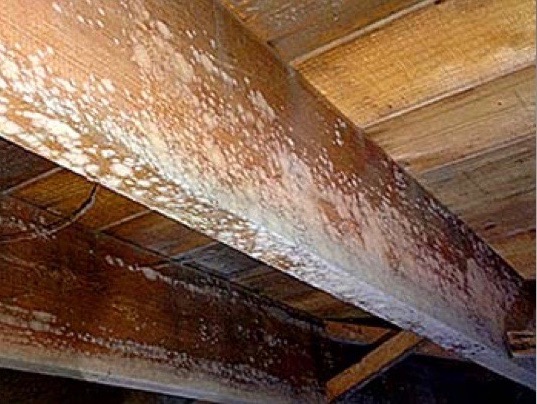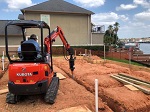

Webmaster: Stansfeld, LLC. |
|
|

DECEMBER 2014 MEETING
Wednesday, December 10, 2014 (1.5 PDH)
TECHNICAL PROGRAM
Methylene Blue Test of Soil Properties: A Rapid and Accurate Field Test
Speakers: Robert L. Lytton, Ph.D., P.E. Professor of Civil Engineering at Texas A&M University, Bryan TX, Tel. No. 979-845-9964 and Hakan Sahin, Ph.D. of PSI, Houston TX
Dr. Lytton is an Honorary FPA Life Member, FPA Structural Committee Member, Professor of Civil Engineering in the Zachry Civil Engineering Department of the Texas A&M University, and a Licensed Professional Engineer in Texas with a Ph.D. in Civil Engineering from the University of Texas (1967). He is internationally famous for his work in the study of the effect of expansive soil on foundations, having given presentations on the subject worldwide. Dr. Lytton has selflessly presented to this forum 12 times and has also presented in past FPA seminars.
Dr. Sahin earned his graduate civil engineering degrees at TAMU, completing his Ph.D. in August 2014. His masters thesis was focused on the lateral earth pressure distribution on cantilever retaining structures in expansive soils. For his Ph.D., Dr. Sahin developed the Methylene Blue soil testing method being presented. Dr. Sahin is currently working as graduate engineer for PSI in Houston.
PRESENTATION SUMMARY
 To an audience of approximately 85 attendees, Dr. Lytton presented a new technique to quickly and inexpensively measure a variety of important soils properties using readily available tools.
To an audience of approximately 85 attendees, Dr. Lytton presented a new technique to quickly and inexpensively measure a variety of important soils properties using readily available tools.
A recently developed use of the W.R.Grace equipment to measure the Methylene Blue content of a soil sample has proven to be surprisingly flexible and capable of rapidly and accurately measuring several important soil index and fundamental properties in the field or laboratory. When it is used in tandem with a Percometer, the equipment is capable of making even more useful measurements. The word “Percometer” is a compound word made up of the words “Permittivity”, “Conductivity” and “Meter”. With or without using the Percometer, measurements can be made in the field in about ten (10) minutes.
Dr. Lytton provided the hand held equipment for review and then illustrated the various properties the tests can be used to determine. A case study was presented to show the use of these tests in determining the compaction of a 4.5 mile length of pavement base course using measurements with a radar van traveling a highway speeds.
Some of the properties that have been measured with this equipment include the following:
- Atterberg Limits ( Liquid Limit and Plasticity Index )
- Percent fines and whether the fines are non-plastic or, if plastic, the degree of activity
- The Characteristic C-Shaped Methylene Blue vs Fines Content curve
When used together with the Percometer, the Methylene Blue test can be used to construct:
- Suction vs water content curve
- Dielectric constant vs suction curve
- Compaction curve ( Dry density vs water content )
When used together with the dielectric constant measurements made with radar signals from a traveling radar van, these tests can produce a strip map of:
- The thickness of the base course
- The level of compaction
- The water content
- The suction
- The resilient modulus of the base course
These measurements are produced every few feet in post-processing on a laptop in a matter of a few minutes. Dr. Lytton noted that the predicted and measured results were a consistent match which proved the viability of the procedure.
Dr. Lytton noted that a large group of users should benefit from this process including geotechnical engineers, foundation design engineers, pavement design engineers, forensic engineers, highway officials, earthwork contractors, builders, attorneys, and others interested in learning more about a new, fast and efficient method to determine soil properties either onsite or in the lab. Dr. Lytton also noted that contractors have expressed the most interest since they see the cost savings of real time testing to avoid remedial work.
To download a copy of Dr. Lytton's slide presentation, click here.
To read summaries of previous FPA presentations by Dr. Lytton, please click:
December 2013 - Design of Drilled Shafts in Expansive Soils. Part 2
December 2012 - Design of Pavements on Expansive Clay Subgrades
December 2011 - Design of Drilled Shafts in Expansive Soils
December 2010 - Effects of Trees on Foundations
December 2009 - Contrasting Design Approaches for Slabs-on-Ground and Raised Floor Foundations on Expansive Soils
December 2008 - How to use the PTI-3rd Edition to Design Foundations in Houston
December 2007 - Design of Structures to Resist the Pressures and Movements of Expansive Soils
December 2006 - Revisitation of Expansive Soils
December 2004 - Case Studies of Residential Foundation Movements in Southern Houston Area
August 2003 - How to Run Soil Suction Tests
August 2002 - Shallow Slope Failures and Suction from Vegetation
August 2001 - Methods to Aid Structural and Geotechnical Engineers in Designing Slab-on-Grade
|



